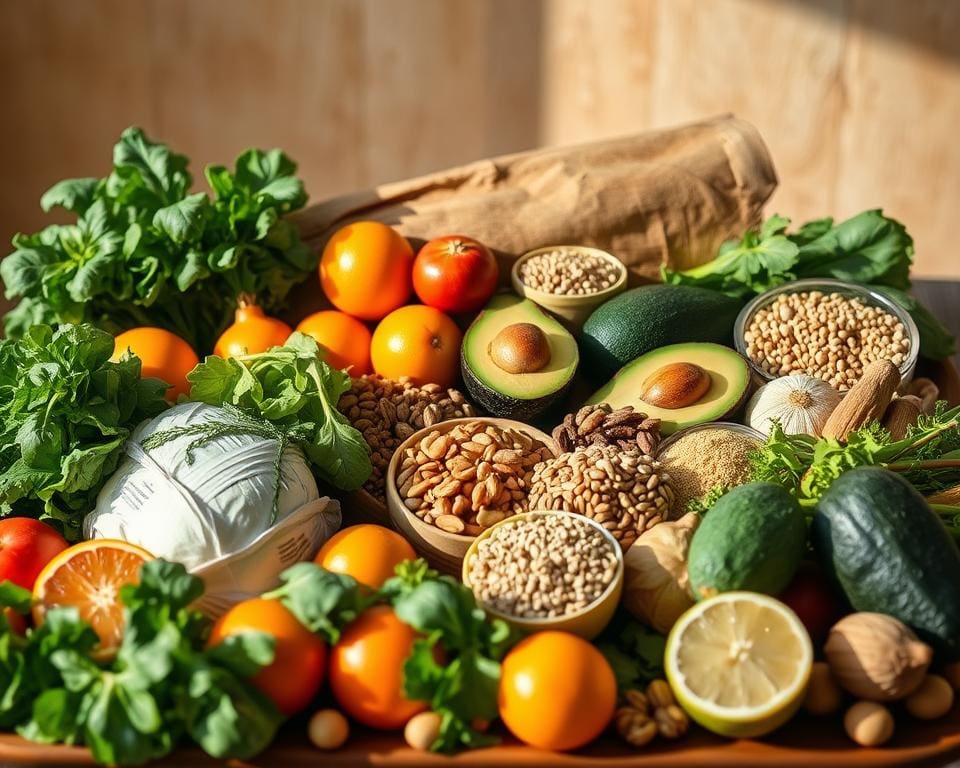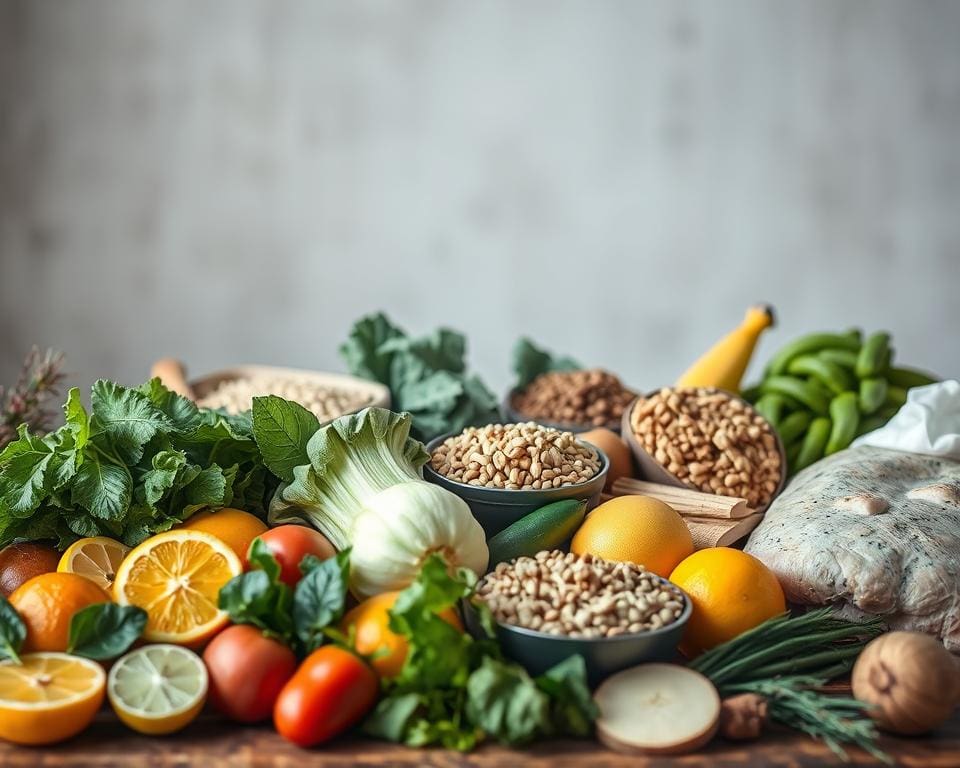Managing gallstones often requires a keen understanding of diet, as the foods you choose can have a significant impact on your gallbladder health. Knowing what foods are good for gallstones is crucial for alleviating symptoms and promoting overall wellbeing. Within a well-structured gallstone diet plan, high-fibre foods, healthy fats, and adequate hydration emerge as essential components. By exploring the best foods for gallstones, individuals can take proactive steps towards symptom relief and long-term prevention. This section will guide you through the dietary choices that can enhance your health journey.
Understanding Gallstones and Their Impact on Health
Gallstones are solid particles that form in the gallbladder, often resulting from an imbalance in the substances that make up bile. This imbalance can lead to cholesterol saturation, causing the precipitate to form. Recognising the factors that contribute to gallstone formation is essential for anyone concerned about their gallbladder health. Certain lifestyle choices and dietary habits can influence the likelihood of developing these stones, making it crucial to understand what foods are good for gallstones in the context of a gallstone-friendly diet.
The Formation of Gallstones
The formation of gallstones primarily involves two main types: cholesterol and pigment stones. Cholesterol stones develop when there is excessive cholesterol in the bile, while pigment stones form as a result of excess bilirubin. A diet high in saturated fats and low in fibre may exacerbate these issues. Risk factors such as obesity can further increase the likelihood of gallstone development. Making informed dietary choices can play a significant role in both preventing and managing gallstones.
Symptoms and Challenges
Many individuals may not experience symptoms until the gallstones cause complications. Common signs include abdominal pain, particularly in the upper right quadrant, nausea, and digestive disturbances. Understanding these symptoms can aid in seeking timely medical advice. Identifying a gallstone-friendly diet proves beneficial, as it can assist in alleviating symptoms and promote overall gallbladder health, leading to improved wellbeing.

What Foods Are Good For Gallstones
Choosing the right foods plays a significant role in managing gallstones and maintaining digestive health. Specific categories of food, particularly high-fibre foods and healthy fats, contribute positively to this journey. Incorporating these kinds of foods into your diet can support overall well-being while targeting gallstone-related issues.
High-Fibre Foods
High-fibre foods are pivotal for aiding digestion and reducing the likelihood of gallstone formation. Foods such as whole grains, legumes, fruits, and vegetables support a healthy digestive system. They help regulate cholesterol levels in bile and promote regular bowel movements, critical for preventing gallstones.
- Whole grain bread and pasta
- Brown rice and quinoa
- Legumes like beans and lentils
- Fruits such as apples and pears
- Leafy greens and vegetables
Healthy Fats
Incorporating healthy fats into your diet can aid in the prevention of gallstones. Unsaturated fats, found in sources like avocados, nuts, and olive oil, are beneficial for maintaining good health. They provide essential fatty acids without increasing cholesterol levels and assist in the proper functioning of the gallbladder.
- Avocados and olives
- Nuts and seeds
- Fatty fish like salmon and mackerel
- Olive oil and canola oil
Gallstone-Friendly Diet Recommendations
Creating a gallstone-friendly diet involves focusing on a diverse array of vegetables and fruits. These foods provide essential nutrients while helping to manage cholesterol levels, thus reducing the chances of gallstone formation. In this section, we will explore some practical ways to incorporate more of these healthy options into daily meals.
Incorporating Vegetables and Fruits
A variety of vegetables and fruits play a crucial role in healthy eating for gallstones. Consider including the following in your diet:
- Leafy greens such as spinach, kale, and Swiss chard, which are packed with vitamins and antioxidants.
- Berries, including blueberries and strawberries, known for their high antioxidant content.
- Cruciferous vegetables like broccoli and Brussels sprouts, which support liver health and help control cholesterol levels.
To make fruits and vegetables a staple, consider preparing salads, smoothies, or simply snacking on fresh produce throughout the day. This not only enriches your diet but also makes adhering to a gallstone-friendly diet easier and more enjoyable.
The Role of Whole Grains
Whole grains are another essential aspect of a gallstone-friendly diet. They provide dietary fibre, which aids digestion and contributes to overall health. Incorporate options such as:
- Brown rice, which offers robust nutrition and is easy to add to any meal.
- Quinoa, a complete protein with excellent fibre content.
- Whole grain breads and pastas that can replace refined versions for better health outcomes.
By including these whole grains in your meals, you not only enhance your nutrient intake but also contribute to healthy eating for gallstones. Each small change adds up, fostering a more nutritious and balanced diet.
Foods to Help with Gallstones
When it comes to managing gallstones, incorporating the right foods can make a significant difference. Lean proteins serve as an essential component of a gallstone-friendly diet, providing necessary nutrients without excess fat. In addition, staying hydrated can greatly benefit overall health and digestion.
Lean Proteins
Lean proteins are among the best foods for gallstones, offering valuable nutrients while keeping fat consumption low. Options such as chicken, turkey, fish, and legumes not only support muscle mass but also minimise the risk of triggering symptoms. These protein sources can easily be included in various meals, providing versatility and satisfaction. Preparing grilled chicken or a fish-based dish with herbs can create enjoyable, flavourful meals that adhere to dietary guidelines.
Hydration and Its Benefits
Maintaining proper hydration is crucial for individuals facing gallstone issues. Drinking adequate amounts of water can help in the prevention of gallstone formation, facilitating digestion and overall bodily functions. Herbal teas and infusions can serve as beneficial alternatives, adding diversity to hydration choices. Adequate fluid intake can also support the body’s metabolism, further promoting a balanced and healthy lifestyle.
Gallstone Prevention Diet Tips
Adopting a robust gallstone prevention diet requires careful consideration of the foods you consume. Avoiding trigger foods becomes crucial for those looking to manage their gallbladder health effectively. Recognising which items might provoke discomfort or contribute to gallstone formation can lead towards better dietary choices.
Avoiding Trigger Foods
High-fat, processed foods and excessive sugar intake have been identified as common culprits in gallstone development. These foods can lead to increased bile cholesterol levels, making it easier for stones to form. Follow these guidelines to help identify and avoid trigger foods:
- Monitor food composition and choose low-fat snacks.
- Limit intake of fried foods and those rich in trans fats.
- Reduce consumption of sugary drinks and desserts.
- Keep a food diary to track reactions to particular items.
Balanced Meal Planning
A successful gallstone prevention diet emphasises balance and nutrition. Plan meals that incorporate a variety of wholesome foods, helping you to maintain optimal health. Here are some tips for meal planning:
- Include an abundance of fruits and vegetables to boost fibre intake.
- Opt for whole grains instead of refined carbohydrates.
- Incorporate lean proteins like chicken or fish to provide essential nutrients.
- Stay hydrated with plenty of water to support overall gallbladder function.
Natural Remedies for Gallstones
Natural remedies for gallstones can be a valuable addition to your arsenal in managing symptoms and enhancing overall gallbladder health. One such remedy is apple cider vinegar, often praised for its potential to aid in digestion and promote bile production, which may help in dissolving gallstones. Incorporating this into your diet can be as simple as adding a tablespoon to warm water, offering both a refreshing drink and possible health benefits.
Peppermint tea is also renowned for its soothing properties, particularly for digestive discomfort. Rich in menthol, this herbal infusion has been linked to promoting bile flow, which may ease symptoms associated with gallstones. Regularly enjoying a cup of peppermint tea can not only provide comfort but also contribute to healthy eating for gallstones.
Turmeric, known for its anti-inflammatory properties, has gained attention in the natural health community for its potential role in gallbladder wellness. Including turmeric in meals or as a supplement might support liver function and enhance bile production. However, it is essential to remember that the use of these natural remedies should be approached thoughtfully and under the guidance of a healthcare professional, ensuring they align with an overall management plan for gallstones.









